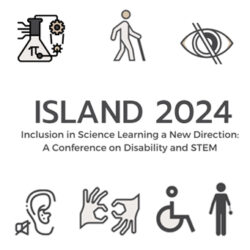Presenters
Helen T. Sullivan1,2, Markku T. Hakkinen2,3, Saara Wahlroos2, Jenni Avovaara2, Anu Horttanainen2, Aino Sutinen2, Charles Rambo2
1Rider University, Lawrenceville, NJ, USA
2University of Jyväskylä, Jyväskylä, Finland
3Educational Testing Service, Princeton, NJ, USA
Abstract
In many graduate programs internationally, students in the sciences are unlikely to receive exposure to academic courses focused on accessibility and inclusive design. The University of Jyvaskyla Summer School, now in its 32nd year, provides a two week program of courses open to graduate students from around the world in subjects including mathematics, physics, biology, computer science, and cognitive science. Since 2017 the Summer School has offered an introductory course in accessible and inclusive design as part of the cognitive science program and in 2022 offered an initial course in Accessible Data Visualizations. Students attending the course come from diverse research areas and are required to attend the introductory course before proceeding to data visualization course. In 2023, the data visualization course was adapted into a three day hackathon format as an experiment with a small number of students. This presentation will describe the summer school program in accessible and inclusive design and focus on the hackathon, the student participants and their project work. Given the intensive, three day format, and the varied backgrounds of the students, we successfully incorporated generative AI as a “coding” apprentice to accelerate prototyping by some students. The ideas developed by the students are explored, ranging from sonification to accessible scientific posters and lithophanes. Implications for future, AI-supported hackathon-based learning opportunities are discussed as a means to develop skills in emerging scientists to support accessible dissemination of their research.
